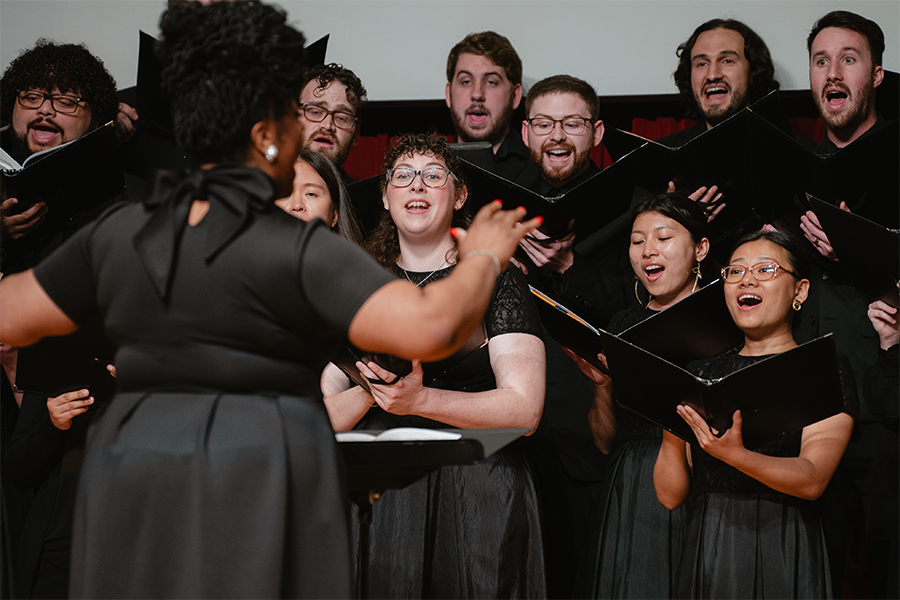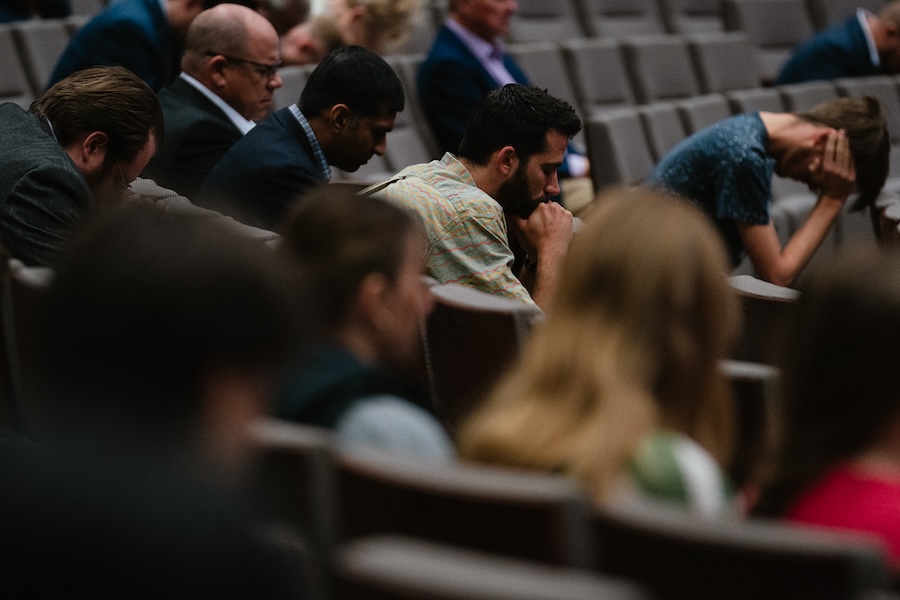Robert Smith Jr. addresses need for heart and mind in Christian education

Christian education must bridge the space between listeners’ hearts and minds in order to effectively change them for Christ, longtime preaching professor Robert Smith Jr. said during Southwestern Baptist Theological Seminary’s chapel on Feb. 6.
“Eighteen inches from head to heart,” Smith pointed out. “From the cranial to the cardiological, from taught truth to lived truth, from exegesis to experience, from learned truth to felt truth. And to hold those inextricably together, so that we present the message that is convincing, that’s Christological, that’s Spirit-driven, and is God-glorifying.”
Smith explained that he came to speak, as part of the International Alliance of Christian Education’s sixth annual meeting that was hosted by Southwestern Seminary, about the heart of Christian education. But he proposed that the issue of Christian education is not a lack of knowledge, but a need to deepen that knowledge so it is not just superficial, but a true understanding and experience of God. And that change needs to begin in the Church.
“I think the church today needs to be admitted into God’s General Hospital,” Smith said. “Where it can undergo a period of redemptive observation and have a blood transfusion, because an ill church cannot really minister to an anemic world and a world that is afflicted and is at best on life support system.”
Preaching from Luke 24, Smith spoke of when Jesus, after His resurrection, spoke to two disciples who were traveling to Emmaus. Calling them slow of heart initially, Jesus walked them through the Scriptures that addressed Christ and His need to suffer and die, and later those disciples announced they felt a burning in their hearts.
Smith pointed out that is the same change that teachers should pursue in their students. In the realm of theological education, he said there is still often a debate between the importance of the head and knowledge, and the heart and feeling. Smith said some students are only interested in feeling, inspiration, and experience and not in being filled with knowledge of God. Conversely, he said others do not bring their heart to the task of learning, “ever-learning but never coming to the knowledge of the truth.”
“The head alone is not enough in Christian education, and the heart alone is not enough in Christian education,” Smith said, pointing out the great command to love the Lord with all of one’s heart, soul, mind, and strength. “They both must be evenly brought together as we present our work to the Lord.”
Just as Jesus first taught the Scriptures and the disciples felt that burning in their hearts, Smith said theological teachers must teach the sufficient and profitable Word of God, extensively in some cases, before it becomes desirable for the listeners.
“It may not be palatable initially,” Smith said. “It is always profitable. But if you keep giving it to your students, keep giving it to your children, that which was not palatable will become palatable without losing its profitability. Stay with that which is profitable until it becomes palatable.”
Smith said there should also not be any distance between teaching and worship, as the very purpose of everything taught is to glorify God from a place of joy found only in Him.
The third stage of the two disciples, following their learning and the resulting burning in their hearts, was a yearning to respond to Jesus, be with Him, and tell others about Him. This point of education, Smith pointed out, is not up to the educators at all, but is a result of God’s work in their hearts.
“I don’t get upset because no one comes down the aisle, because I preach and preach my heart out, no one came,” Smith said. “And I don’t pat myself on the back because 30 people joined the church. Transformation is God’s work and not my work.”
In the meantime, Smith said those teachers must instruct with patience, not giving up because one never knows when or how God might work in the lives of those hearing.
Just as Christ suffered and died before entering glory, Smith pointed out believers today also must endure suffering, trusting in God, while awaiting the moment of glorification and seeing God.
“And after you live such an amount of time, you can look back and see that when you look at your biography, on every page, there are divine fingerprints that you dust for, and you see God’s hand on every page in your life showing us that His plans may be threatened, but they cannot be thwarted. They cannot be overturned.”
Smith expressed the value of Christian education in both the classroom and the church as teachers bring the Word, expounding on it for others to understand and receive into their heart and mind, and then respond with joyful worship. When the Word of God is delivered, Smith said God will reveal Himself.
“The heart of Christian education is a Christ-centered message presented by convicted presenters,” Smith said. “That is filled with the Spirit and preached to the glory of God, so that those who hear it and believe it, live it out in their daily lives, day by day.”
Robert Smith Jr. taught at Southern Baptist Theological Seminary and then for almost 30 years taught at Beeson Divinity School, where he held the Charles T. Carter Chair of Preaching. He also pastored a church in Cincinnati for 20 years.
Smith’s entire message can be viewed here.
Chapel is held every Tuesday and Thursday morning at 11 a.m. (CT) in MacGorman Chapel on the campus of Southwestern Seminary and TBC. Chapel may be viewed live at swbts.live.



